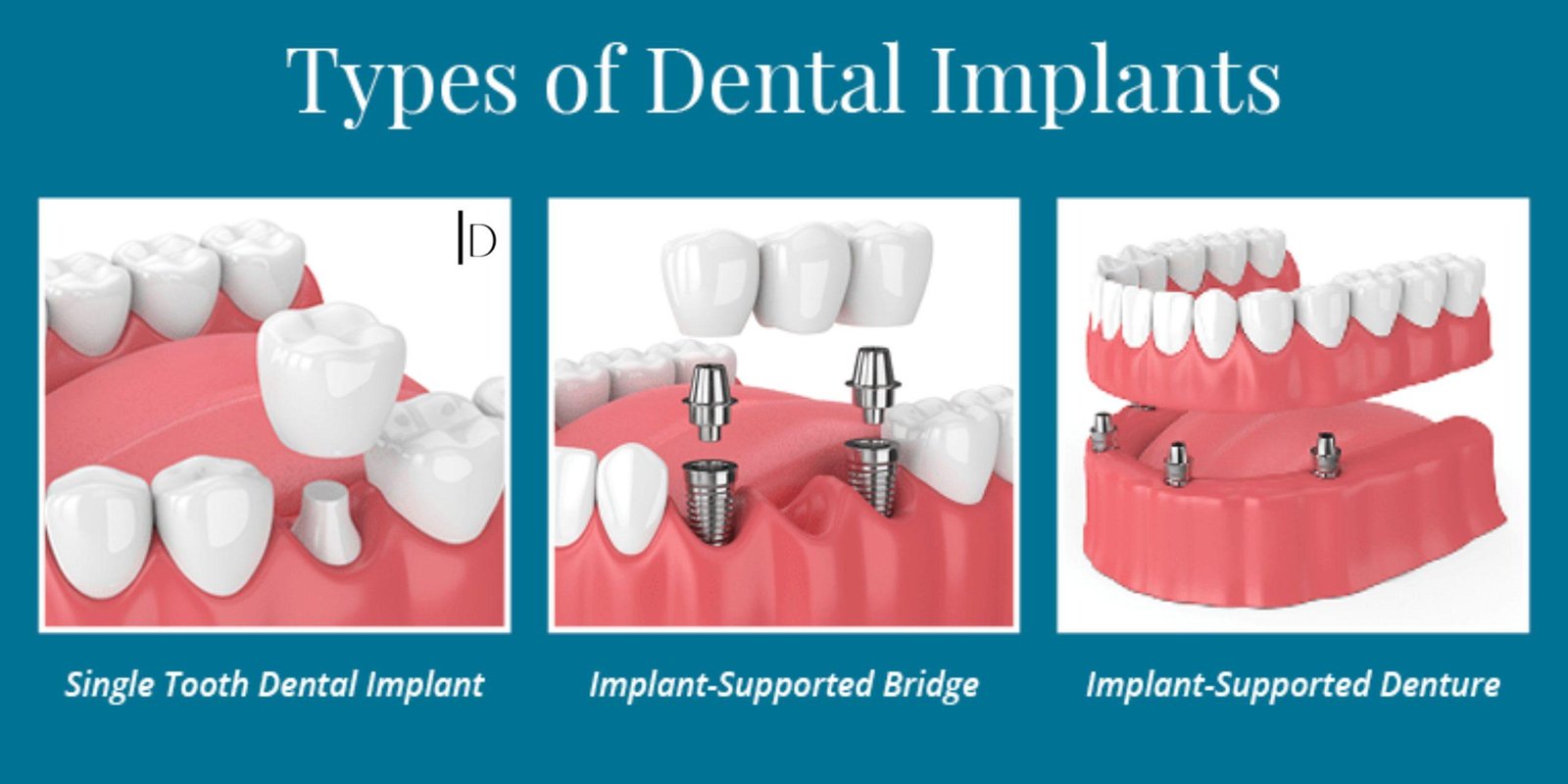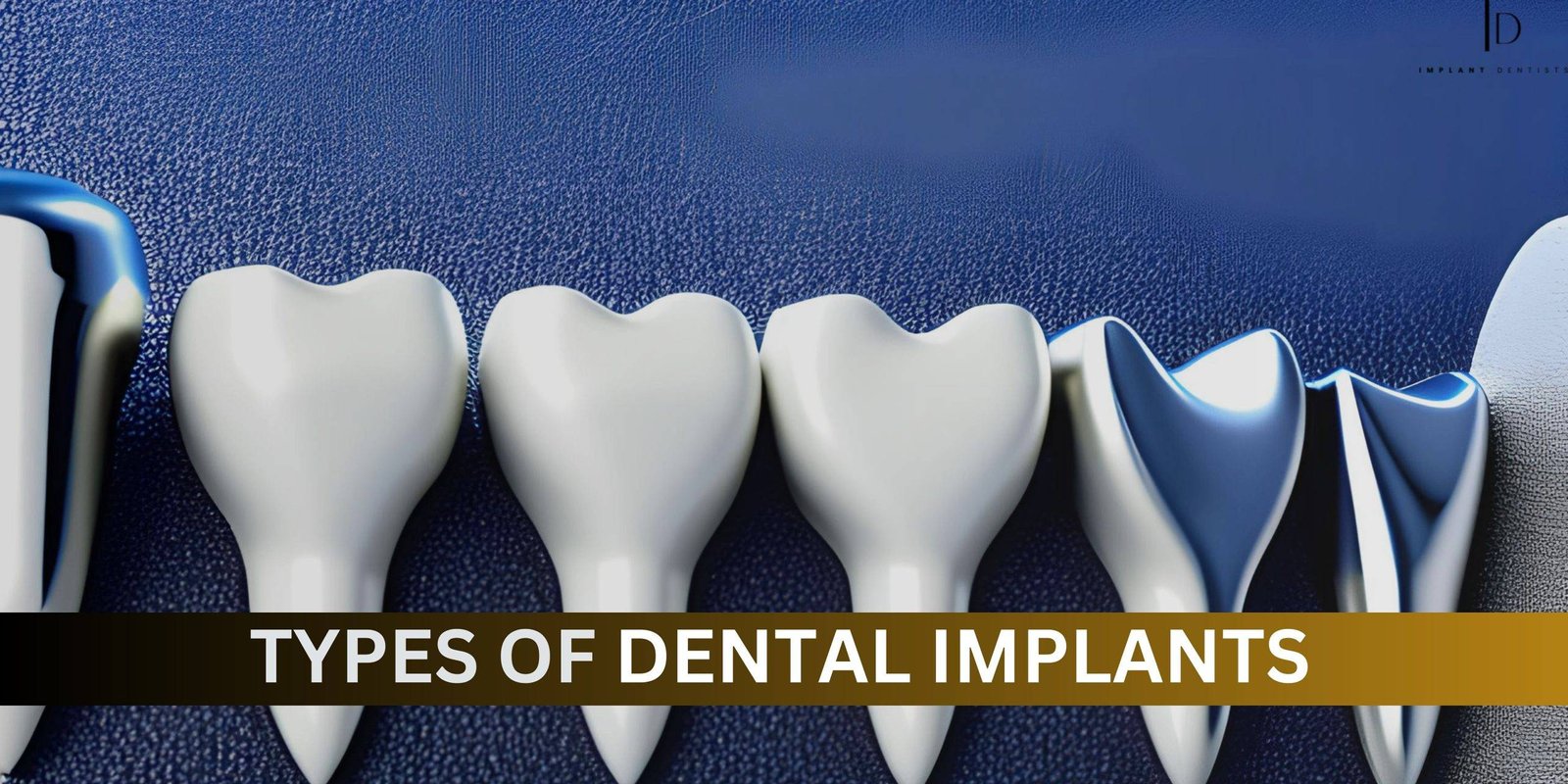Tag: lost tooth replacement

6 Dental Implant Options for Replacing Missing Teeth
March 5, 2024Maintaining optimal dental health is crucial for a lot of reasons. Beyond just showcasing a brilliant smile, healthy teeth contribute significantly to overall well-being. Research in the UK highlights the profound impact dental issues can have on daily life. The absence of a single tooth can severely hinder basic functions. Chewing and speaking can become challenging without a tooth. The loss of a tooth can make routine tasks difficult. Furthermore, untreated dental problems can escalate, leading to more serious health complications. Therefore, prioritizing broken tooth replacement not only enhances aesthetic appeal but also ensures sustained physical health and functionality.
Options available for those who have missing teeth Dental Implants
- Single Tooth Implant: Place an implant screw in the jawbone. Single Tooth Implant: Top the implant screw with a custom-made crown to replace a missing tooth.
- Implant-Supported Bridge: Replace multiple missing teeth in a row with top tooth replacement options available in the UK. Explore dental implant treatments tailored to your needs for a confident smile. Book your consultation today. An implant-supported bridge is an option. Dental professionals place dental implants at either end of the gap to provide stability and support for implant-supported bridges. They support a prosthetic bridge. 5. The prosthetic bridge spans the space.
- Implant-Supported Dentures: Traditional dentures can be secured in place with the help of dental implants. Implant-supported dentures offer increased stability and prevent issues such as slippage or discomfort commonly associated with removable dentures. Depending on the patient’s preference, they can either fix them or make them removable.
- Same-Day Teeth: Some patients can receive dental implants. With advancements in technology and techniques, these patients can have temporary crowns or bridges attached on the same day. This allows for immediate restoration of function and aesthetics.
- All-on-4 Implants: This innovative technique allows for the replacement of an entire arch of teeth using just four strategically placed implants, providing a stable foundation for a full set of prosthetic teeth.
- Guided Implant Surgery: By utilizing computer-guided technology, we carefully plan and execute implant placement with precision, resulting in optimal outcomes in terms of implant position, stability, and aesthetics.
Importance of Dental implants
Dental implants play a crucial role in modern dentistry, offering several important benefits for individuals who have lost one or more teeth. Here are some key aspects highlighting the importance of dental implants:
- Restoration of Functionality: Dental implants are designed to function like natural teeth. They provide a stable and durable foundation for artificial teeth, allowing individuals to eat, speak, and chew with confidence and comfort.
- Preservation of Jaw Bone: When a tooth is lost, the underlying jaw bone can start to deteriorate over time due to lack of stimulation. Dental implants act as artificial tooth roots, stimulating the jaw bone and preventing bone loss.
- Aesthetic Improvement: Dental implants provide a natural and aesthetically pleasing appearance. The tooth replacement teeth are custom-made to match the color, shape, and alignment of existing teeth, resulting in a seamless and attractive smile.
- Long-Term Durability: Dental implants are known for their durability and longevity. Proper care can help implants last for many years. With the right maintenance, they can last a lifetime.
- Improved Oral Health: Unlike traditional bridges, dental implants do not rely on neighboring teeth for support. This preservation of overall tooth health means that adjacent natural teeth do not compromise or alter to accommodate the implant.
- Enhanced Comfort: Dental implants eliminate the discomfort and inconvenience associated with removable dentures. Implants securely anchor in the jaw, eliminating the risk of them slipping or causing irritation to the gums.
Conclusion
In conclusion, the availability of various dental implant options allows for personalized treatment plans tailored to the unique needs and preferences of each patient. Whether a single tooth replacement or an entire arch, dental implants offer a reliable, long-term solution for restoring functionality, aesthetics, and oral health. Consulting with a qualified dental professional can help determine the most suitable implant option based on individual circumstances.

Different Types of Dental Implants: Which One is Right for You?
July 17, 2023When it comes to restoring missing teeth, dental implants have revolutionised the field of dentistry. They provide a durable and natural-looking solution that can significantly enhance your smile and improve your oral health. However, not all dental implants are the same. In this blog, we will explore the different types of dental implants available, helping you understand which one may be the right choice for you.
Understanding Dental Implants
Before diving into the specific types of dental implants, it’s important to have a basic understanding of what they are and how they work. Dental implants are artificial tooth roots made of titanium that are surgically placed into the jawbone. They serve as a foundation for replacement teeth, such as crowns, bridges, or dentures. Dental implants provide a stable and long-lasting solution, mimicking the function and appearance of natural teeth.
Traditional Implants
Traditional dental implants, also known as standard implants, are the most common type of dental implants used today. They consist of two main components: the implant itself, which is surgically placed into the jawbone, and the abutment, which connects the implant to the replacement tooth. Traditional implants are versatile and can be used to replace a single tooth, multiple teeth, or even a full arch of teeth.
Mini Implants
Mini implants are smaller in diameter compared to traditional implants. They are an alternative for patients who have limited bone density or require less invasive treatment. Mini implants can often be placed without the need for bone grafting, making them a suitable option for those with insufficient jawbone structure. While they may not be as versatile as traditional implants, mini implants can effectively support single-tooth restorations and stabilise dentures.
All-on-4 Implants
All-on-4 implants, as the name suggests, are designed to replace a full arch of teeth with just four implants. This innovative technique maximises the use of available bone and eliminates the need for individual implants for each missing tooth. All-on-4 implants offer a quicker treatment process and are an excellent option for patients who have experienced significant tooth loss or have inadequate bone volume.
Immediate Load Implants
Immediate load implants, also known as same-day implants, allow for the placement of a temporary tooth or restoration immediately after the implant surgery. This means that patients can leave the dental office with a functional tooth on the same day. Immediate load implants can be advantageous for individuals who want to avoid the inconvenience of a waiting period between implant placement and receiving their final restoration.
Zygomatic Implants
Zygomatic implants are an advanced option for patients who have severe bone loss in the upper jaw. Instead of being anchored in the jawbone, zygomatic implants are anchored in the zygomatic bone, which is denser and provides a secure foundation for the implant. This type of implant eliminates the need for bone grafting procedures, making it a viable solution for individuals with significant bone resorption.
Choosing the Right Dental Implant
Selecting the right dental implant depends on various factors, including your oral health, bone structure, and specific lost tooth replacement needs. It is essential to consult with a qualified dentist or oral surgeon who specialises in implant dentistry. They will evaluate your unique situation, perform necessary examinations, and recommend the most suitable implant option for you.
Conclusion
In conclusion, dental implants offer a reliable and aesthetically pleasing solution for individuals with missing teeth. Whether you require a single tooth replacement or a full arch restoration, there are various types of dental implants available to suit your specific needs. By consulting with a dental professional and considering factors such as bone density, oral health, and desired outcome, you can determine which type of dental implant is right for you. Remember, choosing the right implant is a crucial step towards achieving a beautiful and functional smile that can last a lifetime.
